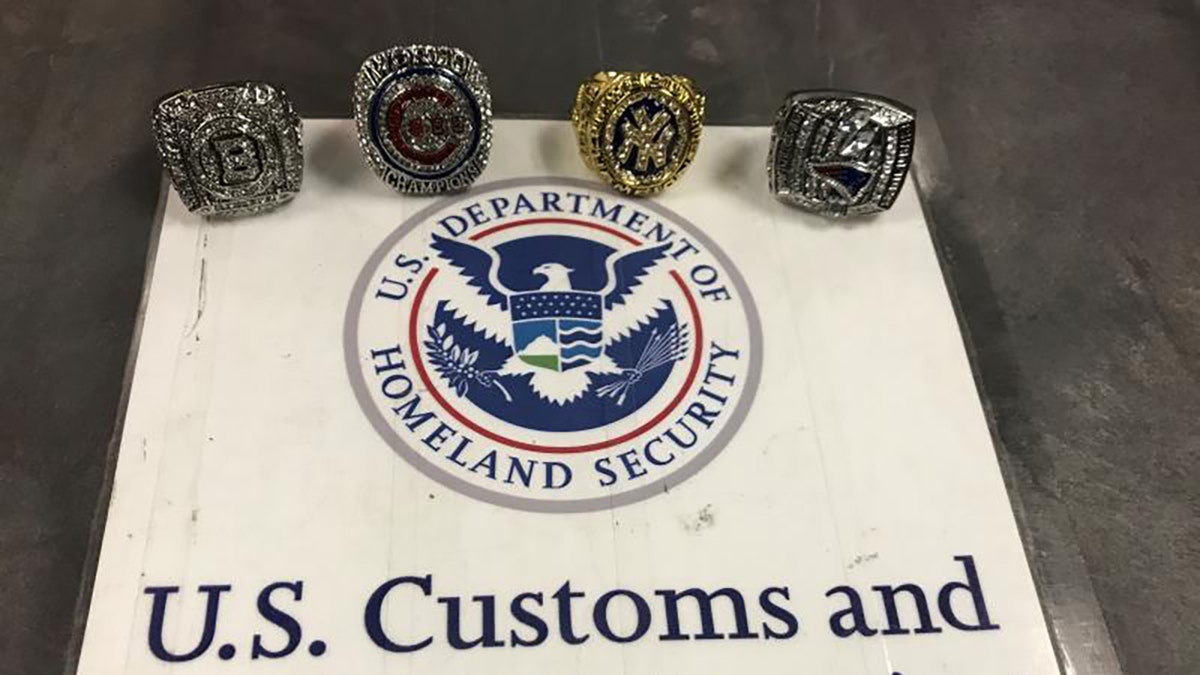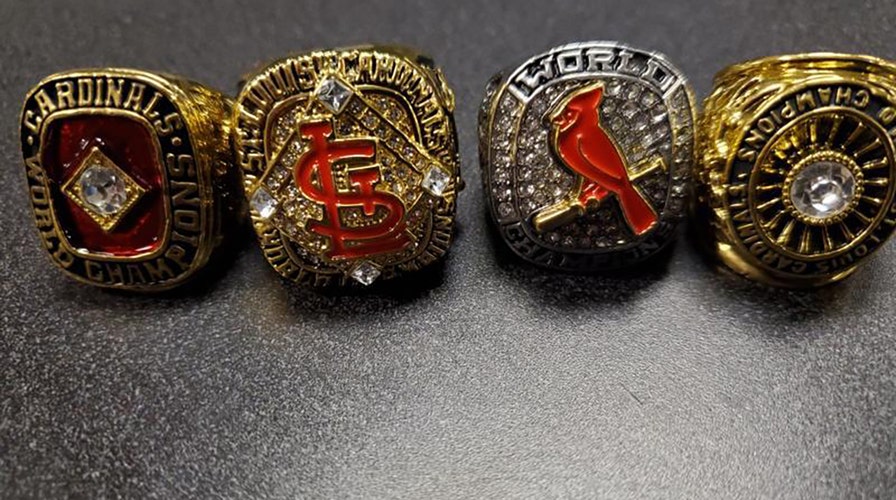Fox News Flash top headlines for Dec. 19
Fox News Flash top headlines for Dec. 19 are here. Check out what's clicking on Foxnews.com
Agents in Memphis intercepted three different shipments from China that contained hundreds of fake NFL, MLB and NHL replica championship rings, officials said Wednesday.
Customs and Border Protection officers seized a total of 631 replicas between Oct. 2018 to Sept. 2019, including bogus New England Patriots Super Bowl rings, and phony New York Yankees and St. Louis Cardinals World Series rings.
If authentic, the total rings would have been valued at more than $6,300,000. All the packages containing the fake sports memorabilia had been shipped from China and were heading to various U.S. addresses, according to the CBP. The poor packaging and craftsmanship of the merchandise tipped off the officers, who later determined the rings were fakes.

An authentic championship ring can cost anywhere from $10,000 to more than $35,000, according to the CBP. (U.S. Customs and Border Protection)
“One of CBP’s responsibilities is to protect Intellectual Property Rights. Our officers do a great job of detecting and seizing counterfeit goods,” said Michael Neipert, Port Director for CBP Memphis.
The defense of U.S. intellectual property rights is a major part of President Trump’s ongoing trade talks with Beijing. Counterfeit merchandise imported from overseas can result in significant revenue losses and damage the U.S. economy.

The three different shipments of fake NFL, MLB, and NHL rings included teams such as baseball's St. Louis Cardinals. (U.S. Customs and Border Protection)
The Memphis seizures are the latest reported case of fake sports memorabilia shipped from China.
Last month, Philadelphia CBP officers seized 11 counterfeit Super Bowl and World Series replica rings, which are worth $526,000 when authentic. The fake rings included nine New England Patriots rings, one New York Yankees ring and a Houston Astros ring.
In March, CBP officers at John F. Kennedy Airport in New York intercepted 177 fake sports rings that would have been worth $11.7 million. The shipment again included rings being passed off as New York Yankees World Series rings, along with NFL, NHL and NCAA championship rings.
CBP Memphis warned fans to be cautious when purchasing a replica ring of their favorite team, noting that fake Super Bowl rings are on the rise as this year’s NFL season nears its end.
CLICK HERE FOR THE FOX NEWS APP
“If a deal on a trademarked item appears too good to be true, it probably is,” Neipert said.


